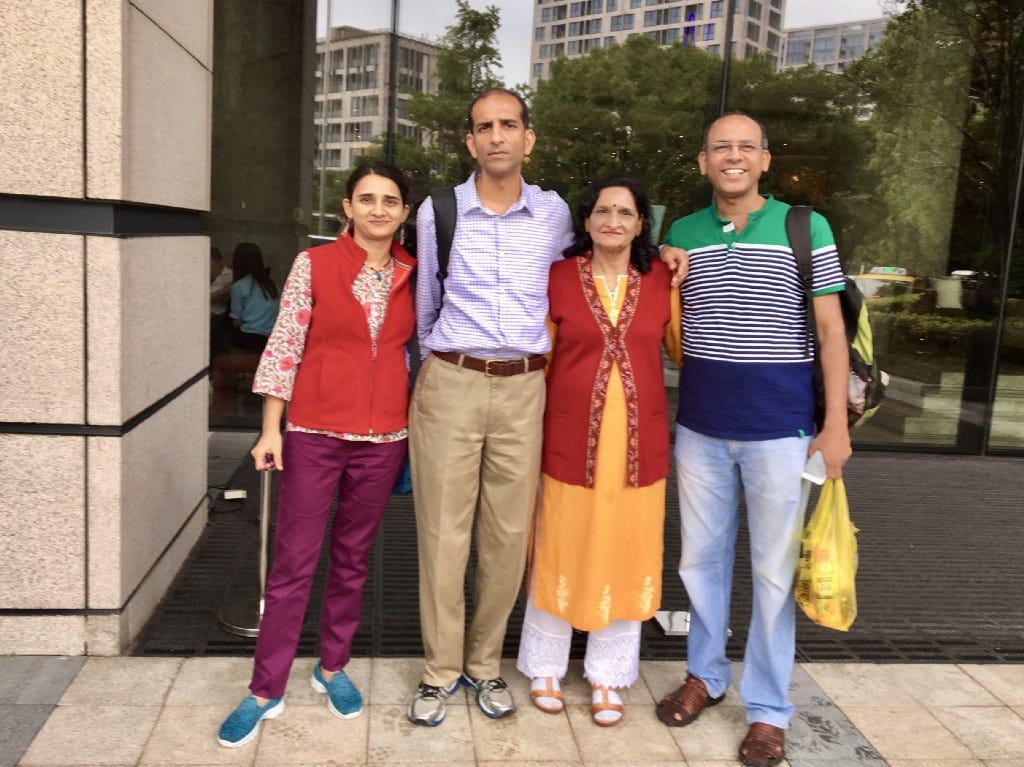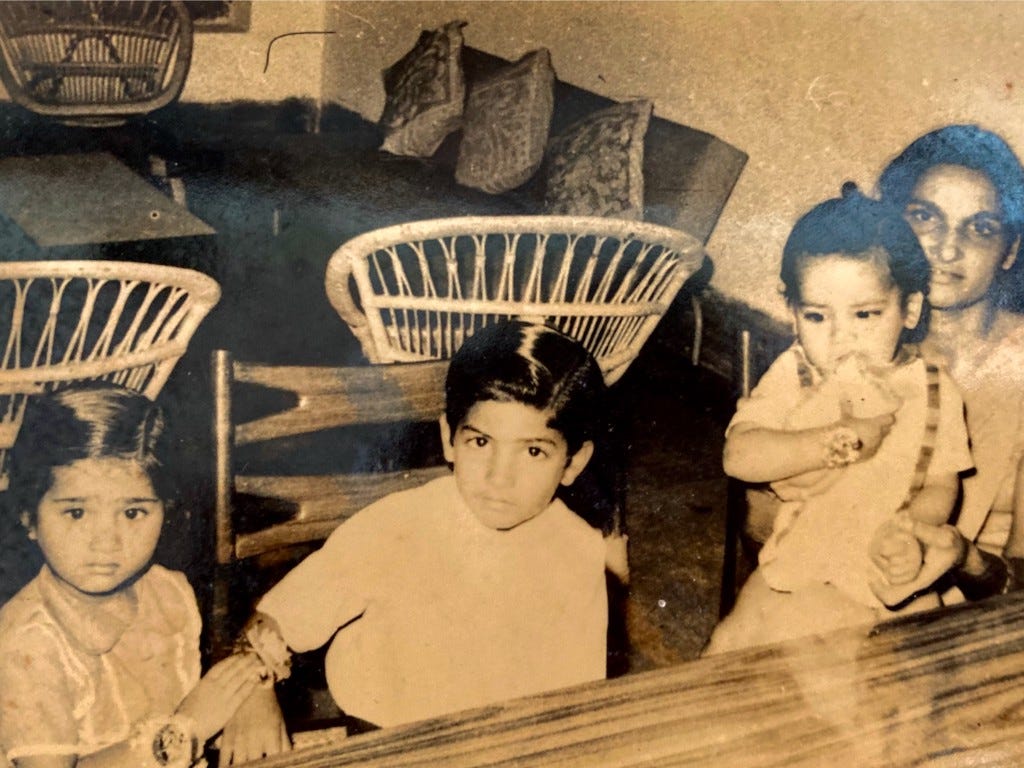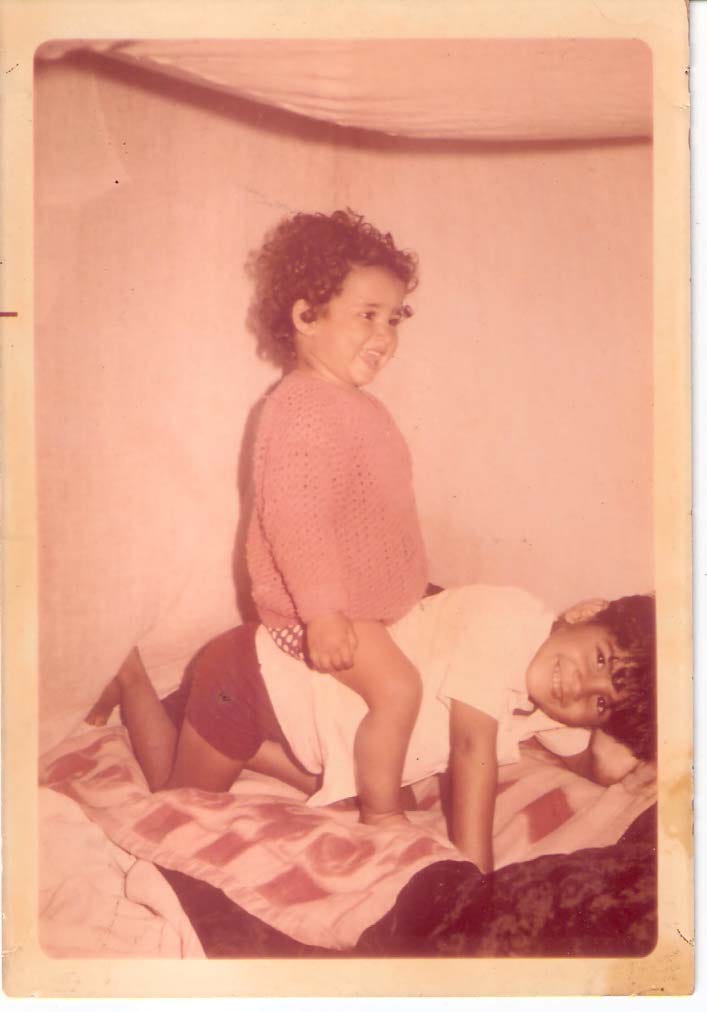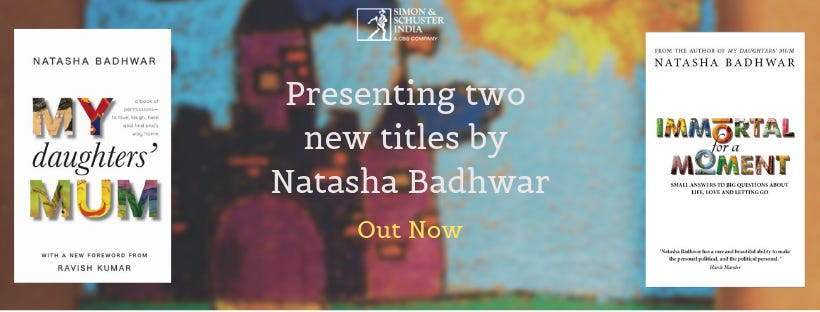Brothers and Sisters — no strings attached, even on Rakshabandhan
I feel like the ritual of Rakhi comes between my brothers and me. All sisters are extraordinarily protective of their brothers. We need a festival that honours that too.
I have two brothers. Bhai, who is older than me, is the book I might write one day. Manu, our funny-serious kid brother, is my collection of short stories.
I love my brothers. In a way they are the story of my life. Yet every year when Rakshabandhan comes around, I just want to ignore it and look the other way till it has passed.
Bhai was the leader of our pack of children. He was a little scientist. He loved quizzes and general knowledge books. He would educate and entertain us with his magic shows, his science project expertise, his imitation of Abdul Qadir’s unique bowling style and his narration of Shakespeare’s plays on our way to and from the Mother Dairy milk booth everyday.
Manu was an inexhaustible energy ka gola. He spent endless summer afternoons whizzing through the length of our DDA flat on his blue skateboard. He coached me to play hockey and football on the roof of our home, so he would have a partner to play with. He obediently played badminton with me when it was prescribed as physiotherapy for my fractured elbow, all stiff and clumsy as it emerged from its cast. He hated how slow I was but he tolerated me. I didn’t show enough aggression as a player, but sometimes I was all he had. Manu played to win. He taught me how to cycle.
On Rakhi morning, suddenly we would find ourselves separated into the categories of brothers and sister. The boys and the girl. Family, culture and society would step in with a different sort of narrative that didn’t align with our experience. Stories of helpless women in trouble. Their brothers, real and imagined, expected to rescue them from being dishonoured.
The generosity of brothers and the giggly gratitude of sisters. The reminder that the sister is vulnerable and the brother invincible. The announcement of the ‘auspicious’ time. As we became young adults, Rakshabandhan began to leave me cold. I really didn’t need it.
I have value for tradition that binds. That underlines how we are equals despite differences. Not one that imposes roles and choices that feel blatantly false and forced; that don’t fit the reality of our lives. I look back at us and see the three of us wrestling, playing, cycling, recording song compilations, writing slogans for TV contests, collecting data in our quiz notebook and teasing each other with burp and fart jokes.
Manu finished school and went to engineering college in Jamshedpur. He didn’t want to be an engineer. When he returned home for a break 2 months later, his lips were swollen and his face marked by the slaps and blows that had been part of routine ragging in his college. He didn’t want to go back, but he had to.
The next time he returned, he told me ugly stories of caste politics and student violence deep into the night. The third time he returned in the same year, Manu was adamant that he was never going back.
“Its teething troubles,” I tried to convince him. “You’ll find a way to make a space for yourself.”
“You have no idea,” he said. “The way these boys talk about girls, the way they harass them in markets and cinema halls… I cannot stay in that place, leave alone study there. I will go mad.”
That was a Rakshabandhan moment. I knew I had to stand by my brother now. He needed me to protect him, to support him to protect himself. We negotiated with our parents. Manu promised to study harder and sit for engineering entrance exams again so he would get a better rank. He kept his promise. The little fighter had grown up and chosen peace.
A few years later, I was in a hotel room in Kemps Corner, Bombay, working as a media professional to create a new TV series. My producer and I had arrived in Bombay to recruit a cast and film for a candid camera comedy serial called Chhupa Rustam.
The phone rang. Bhai was calling from New York. It was urgent.
He had fallen in love and he wanted her to know his family. He was asking me to write a letter to someone I had never met. He wanted me to share my words with someone to reassure her that he was a good bloke. That day was Rakshabandhan for us.
I own my relationship with my brothers. It is the purest thing in my life. Underneath the obvious one, is a secret, sacred bond. We will always be there for each other, irrespective of whether the online Rakhi store delivers on time or not, unconditional of whether I turn up at Manu’s office lobby to tie a Rakhi on his wrist or not.
Every time one of us calls the other on the long drive to work, it is Rakshabandhan. Every time we don’t bother to buy each other gifts because love is all we need, it is Rakhi. Every time we look at each other’s children and want to squeeze them tight because they remind us of us…it is Rakhi.
All sisters are extraordinarily protective of their brothers. We need a festival that honours that too. So when I pick up the 3 bits of rice soaked in red and put that tilak on my brother’s forehead, the thought in my mind is, “Go on, my beloved, be the best version of yourself, I am here to protect you. To hold you.”

This essay is an excerpt from my memoir, Immortal for a Moment







The pictures! 🥹 I have two sisters and Raksha Bandhan for us meant watching people feel bad for us while we tried to figure out why. Even in our tiny heads, we were content to be a family of three siblings. Not sisters.
Thank you for this gentle calling out of traditions that "other" us.
A warm read in your warm writing voice, and the photographs just enhance the emotions. I do not have a brother but a super protective elder sister and we have no day to celebrate our relationship! I had not truly realised this until I read your essay, and it's a big realisation. Whenever you speak and write about your brothers, I realise how sibling love is quite an underexplored emotional landscape, especially when we remove the lens of gender and other cliche.💜🌺